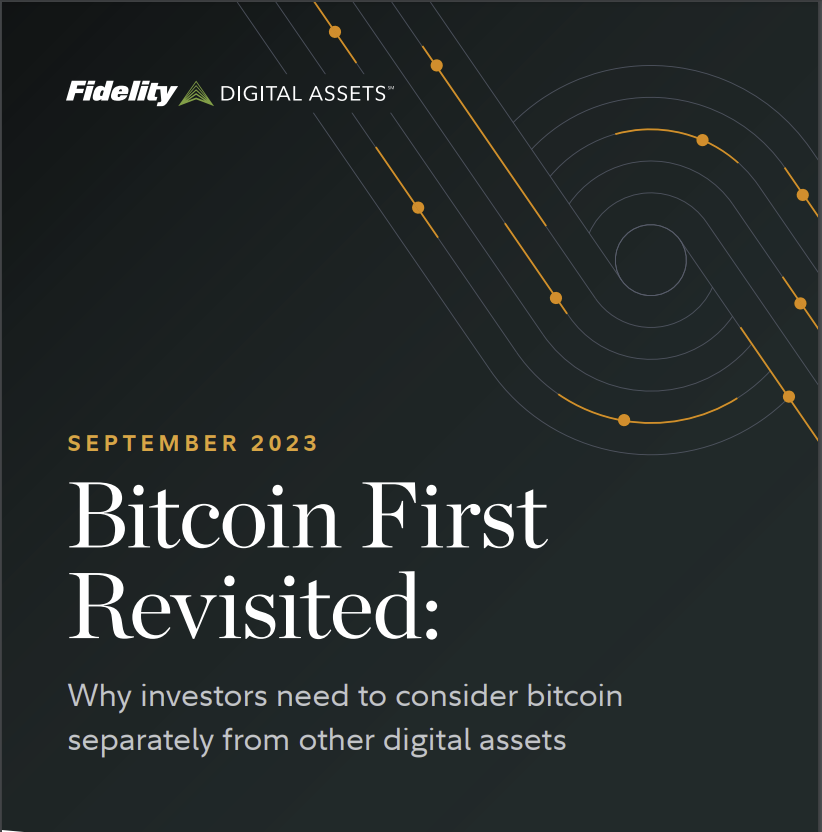The copyright in the report [and this blog] belongs to by Chris Kuiper and Jack Neureuter and Fidelity Digital Assets.
Background
In January 2022, we outlined Bitcoin’s unique characteristics, why they make Bitcoin fundamentally different from other digital assets, and why this is important for investors to consider. Over a year and a half later, Bitcoin continues to gain adoption and market share in the digital asset space, while other digital assets have faced separate headwinds. While we encourage those seeking a detailed understanding of Bitcoin’s unique value propositions to read the earlier overview, we aim to reiterate many of Bitcoin’s fundamental advantages below while contextualizing Bitcoin’s progress and position within today’s current digital asset market.
Executive Summary
Once investors have decided to invest in digital assets, the next question becomes, “Which one?” Of course, bitcoin is the most recognized, first-ever digital asset, but there are hundreds—even thousands of other digital assets in the ecosystem.
One of the first concerns investors have regarding bitcoin is, as the first digital asset, it may be vulnerable to innovative destruction from competitors (such as the story of MySpace and Facebook). Another common consideration surrounding bitcoin is whether it offers the same potential reward or upside as some of the newer and smaller digital assets that have emerged.
In this paper, we propose:
- Bitcoin is best understood as a monetary good and one of the primary investment theses for bitcoin is as the store of value asset in an increasingly digital world.
- Bitcoin is fundamentally different from any other digital asset. No other digital asset is likely to improve upon bitcoin as a monetary good because bitcoin is the most (relative to other digital assets) secure, decentralized, sound digital money and any “improvement” will potentially face trade-offs.
- There is not necessarily mutual exclusivity between the success of the Bitcoin network and all other digital asset networks. Rather, the rest of the digital asset ecosystem can fulfill different needs or solve other problems that bitcoin simply does not.
- Other non-bitcoin projects should be evaluated from a different perspective than bitcoin.
- Bitcoin should be considered an entry point for traditional allocators looking to gain exposure to digital assets.
- Investors should hold two distinctly separate frameworks for considering investment in this digital asset ecosystem. The first framework examines the inclusion of bitcoin as an emerging monetary good, and the second considers the addition of other digital assets that exhibit venture capital-like properties.
DOWNLOAD HERE
The copyright in the report [and this blog] belongs to by Chris Kuiper and Jack Neureuter and Fidelity Digital Assets.
